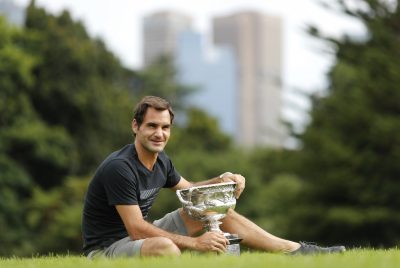
World No. 1 Roger Federer’s coach Ivan Ljubicic has disclosed the hardest thing about coaching the 20-time Grand Slam champion.
Federer, who became the oldest No. 1 in tennis history after winning the ABN AMRO World Tennis Tournament in Rotterdam is currently resting at home in Switzerland. The Swiss legend will be back in action at the Indian Wells Masters, which will get underway on March 9 in California.
A lot of people have credited Federer’s current mentor Ljubicic for his late career revival. But, the Croatian revealed that it wasn’t all that easy initially because it was hard to convince Federer about changing certain aspects of his game. However, as the relationship grew stronger, the changes did take place and the desired results followed soon after.
He told the official ATP website: “When you talk about coaching at the highest level, you have to listen a lot. The most important thing is to understand a player. Listen at the beginning, but then listening in general to understand and ultimately help a player.”
“When you start with a player in the middle of a season, such as Milos, you can’t step in and say, ‘I want to change everything, because this is how I did it.’ I feel that it doesn’t work like that.
“You see, if you are coaching a player, who has been around for a while, he has his own patterns and ideas. His own opinions on a lot of stuff, and you have to pick your fights on what you think will have the biggest impact on a game or the result.”
“The biggest difference between coaching and playing is that the player is the boss,” said Ljubicic.
“The player has to be mentally strong, a leader, because on the court, he makes all of the decisions. Then, as a coach, you have to put your ego aside and make sure you do everything the player needs to compete better and be a better person.
“In coaching Milos or Roger, I never thought about short and long-term impacts. I think about how do I improve a player? How can this be better? What can be done? The truth is if you don’t make a quick impact, there might not be any long-term goals. That’s the tricky part. There is a fair amount of luck also, because you need to get results at the beginning and the confidence of a player. No matter how sure the player is in his confidence of a coach, if the results aren’t there after a while, then all sorts of problems arise.”





